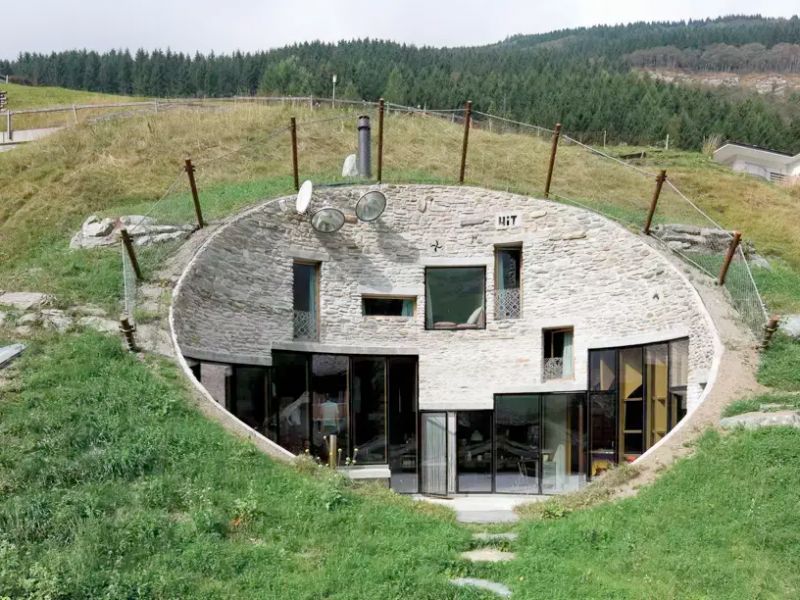‘How do you want to be called?’, asks Ketty Steward, ‘Here you can be called whatever you want’. ‘Here’, means Thursday, July 7, 2050 in the future that we are creating today with Ketty, the psychologist and science-fiction writer hosting the agora. We are a group of 15 people who don’t know each other, and we can’t wait to start building a shared future!
Ketty chose to make us build a family in 2050 together. A strange, undetermined, improvised family. The method she uses balances creative freedom and guidance : the idea is to guide us into expressing our own imagination. But first of all, we need to get into the right mindset. Ketty challenges us with a hard but important question: ‘Why do you think you’re a great person?’. Answering this question is a way of sharing personal thoughts, while thinking about the best version of ourselves. Care, generosity, curiosity, empathy, honesty, spontaneity… With such a gifted group, we can now start to work together.
Expanding collectively our imagination
The first step invites us to make mental associations, in order to free our minds and connect with our spontaneous imagination. Each one of us says a random number, that Ketty has associated with a word just as random, and we must answer quickly with three words appearing in our minds. Ketty is very reactive and doesn’t let us think twice. For now, we just let go. The bank of words we collectively created - from ‘flamingo’ to ‘rust’ - can help us get inspired if we struggle with the writing later on.
In order to build a family, we must first build a world to inhabit. The science-fiction writer Laurent Kloetzer recently told me that science-fiction is about developing creative assumptions formulated from your own sensitivity, and projecting them into an imagined world. Ketty is guiding us into creating our own collective science-fiction story, but starting from the creation of a world that we picture together. This 2050 world is neither utopian nor dystopian, it is made up of many diverse, sometimes contradictory elements. Every idea is a good idea.
‘What do you eat?
Where do you live?
What do you see from your window?
What do you hear?
What does it smell like?’
Each question Ketty asks engages us to see ourselves into an alternative world, and progressively, collectively, shape it. The ideas fly and answer each other: ‘I can smell the delicious flies and caterpillars that are being fried’, or ‘I don’t hear much because we live underground, but there is a weird and distant buzzing noise, is it music?’.

Now that we have constituted a world together, we can build our family. Ketty guides us again through randomness by asking us to pick numbers. Each number is associated with information from which we will start imagining situations for our family. As fate would have it: we are 6, we are linked by intellectual affinity, our central ritual is sexuality, and we have a house. Undoubtedly, the future is surprising.
The challenge is to imagine together the life of this alternative family, by freely sharing any idea coming to mind. After more than an hour discussing and sharing personal thoughts about nuclear RVs and luxurious cow milk, we are now comfortable with one another. The ideas fly again, with even more engagement and precision. Through discussion and dissensus, we try to agree on something:
- ‘We can be a genetically superior family, using sexuality to reproduce our family’s great genetics’, suggests Ghustavo.
- ‘I think that sexuality will only be for pleasure in the future, and reproduction will be engineered by scientists’, answers Lilla.
- ‘So sexuality can be a way for us to deal with conflicts, like bonobos!’, exclaims Anna.
- ‘And our great genetics could be the result of an AI profiling and matching us into families’, settles Olivia.
Accordingly, we are a genetically optimized family, matched by an AI, and dealing with conflicts through sexual rituals. This family is going to be interesting to write about! The timing is right because we arrive at the last step of the workshop: writing.

Creating a collective and telling its story
Ketty gives us 10 propositions of constraints within which we must write: ‘A crisis endangers your family, tell us about it and how to solve this’, for example, or ‘A member of the family dies. What happens?’. Rather than a self-imposed constraint, it is more of a frame helping us to channel our imagination into a given situation. As one of the participants underlines, it is difficult to imagine something out of the blue: a name, an emotion, a situation. Ketty offers a structure for us to thrive in. Without structure, we wouldn’t be able to work together and be open to new perspectives, and without freedom of imagination, we wouldn’t be able to see ourselves in our stories.
The aim of Ketty Steward’s method is to enable the participants to project themselves in a story. The power of a narrative comes from its ability to say something about the people who wrote it, and to offer a door to another world of possibilities – or perhaps many other worlds, if there is enough space for the readers’ interpretations. As the political scientist Yannick Rumpala explains in his book Hors des décombres du monde (Out of the rubble of the world), narratives – especially science fiction – allow us to experience the habitability of different worlds. But Ketty’s focus here is less the political and critical aspect of narratives, than the empowerment of individuals through the experience of collective imagination.
We are proud of the stories that we managed to write in less than two hours: some are disturbing, some are poetic, some are funny. And more importantly, we shaped a unique collective future through discussion and imagination, we connected with each other and with our creativity. One thing is certain: that skill is going to be of much need in the next decades!
This online agora took place on July 7, 2022, as part of Narratopia’s Collective Practices project. It was organized by the Plurality University Network (U+), and facilitated by Ketty Steward.
Article written by Juliette Grossmann